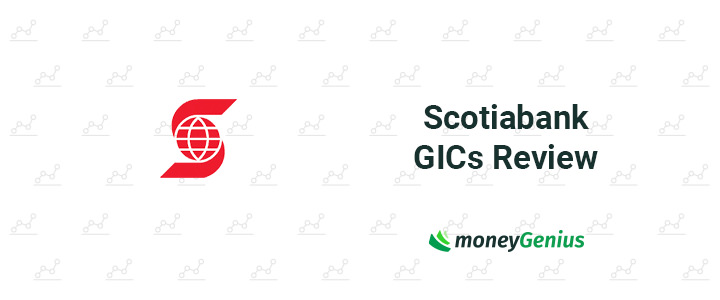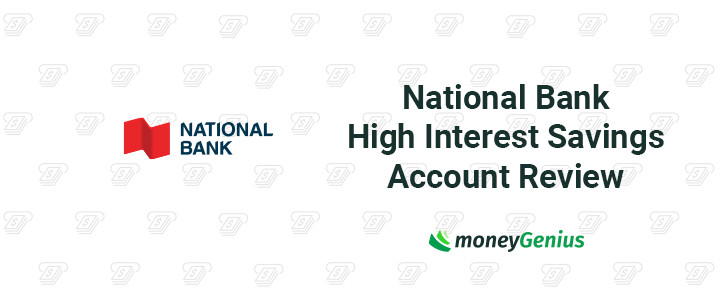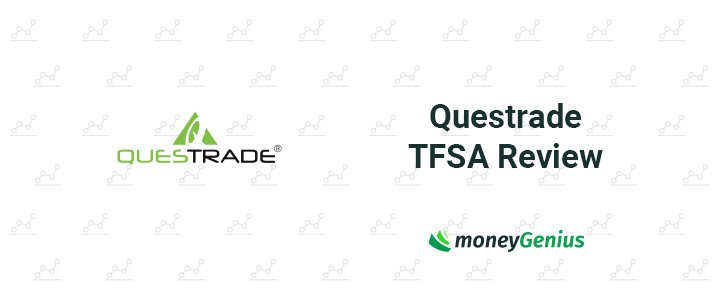Like most major Canadian banks, TD offers several different investment products, including mutual funds. You can invest in mutual funds with TD through their DIY investment platform, TD Direct Investing, or through your TD Wealth financial advisor.
With 150 different funds available, you'll likely be able to tune your portfolio to meet your needs. And if you're unsure of your risk tolerance or investing goals, a TD Wealth financial advisor can help.
Professionals compile and manage mutual funds as collections of assets, such as stocks, bonds, GICs, and other securities. The types of assets in a mutual fund determine how risky it is. For instance, a mutual fund that is mostly invested in stocks will likely be more volatile than one mostly invested in bonds. Alternatively, a mutual fund that is mostly invested in bonds will likely see lower returns than a fund invested in stocks.
TD Mutual Funds features
If you're unsure about managing your own investments, you'll appreciate that professionals handle TD mutual funds for you. You can get started investing with TD mutual funds for as little as $100, making them some of the most affordable mutual funds in Canada.
TD mutual funds offer plenty of options, no matter what type of investor you are. Retired? TD has retirement portfolios for that. Income investor? Check out fixed income funds. If you're looking for quick returns, TD’s money market funds might fit the bill, while long-term growth investors will be attracted to TD’s growth funds.
- DIY investing option
- Set up regular contributions to your investment accounts
- TFSA
- RRSP
- Cash
- RESP
- RIF
- Margin
- LIRA
- LIF
- RDSP
- Balanced
- Canadian Equity
- Global Equity
- Fixed Income
- Money Market
- Sector
- US Equity
- Portfolio Solutions
- Retirement
- Conservative
- Balanced Income
- Balanced
- Balanced Growth
- Growth
- Aggressive
TD Mutual Funds product rating: 2.0 stars
If you're interested in investing in mutual funds, TD offers comparable products to other major Canadian banks. While it only has 133 options (compared to BMO’s 404 and Scotiabank’s 3,500), their offerings still fit a wide variety of needs. Investors looking to grow their returns, earn a steady income, or simply protect their wealth should be able to find something suitable at TD.
While TD's average fees are comparable to most other banks, some of their funds do have higher fees than Scotiabank's or BMO's. The MER of an investment fund, or management expense ratio, is essentially the company's cost of managing a fund. These costs can include management fees, operating costs, taxes, and other fees. While an MER of 1% or 1.5% might not seem like much in the short term, it can have a significant negative impact on your overall returns over time.That's why it's best to look for investment funds with the lowest possible fees.
Rating methodology
We break each product and service down into its component features, then compare those against similar products on the Canadian market. From there, we give each feature a score out of 5, and the average of those scores becomes our final product rating ranging from 0 to 5 stars.
Learn more about our rating methodology.
The pros of TD Mutual Funds
Here's what TD mutual funds have going for them.
 Plenty of funds available
Plenty of funds available
As of November 2025, there are 133 different TD mutual funds available, including balanced, Canadian equity, global equity, fixed income, money market, sector, and more. This wide variety of funds lets TD accommodate many different investors with different goals. Someone looking to grow their wealth over a long period of time could choose a mutual fund that is heavily invested in equities. On the other hand, a risk-averse investor or someone looking to live off their savings could choose a fixed-income fund.
 Small minimum investment
Small minimum investment
You can invest in TD mutual funds with as little as $100, which is lower than what some other banks require as a minimum investment. For instance, both Scotiabank and BMO require a minimum investment of $500. This makes it easier for people with smaller budgets to start investing.
 Wide range of account types available
Wide range of account types available
TD mutual funds can be part of your Registered Retirement Savings Plan (RRSP), Tax Free Savings Account (TFSA), Flexible Spending Account (FSA), Registered Education Savings Plan (RESP), Registered Retirement Income Fund (RRIF), Registered Disability Savings Plan (RDSP), and several other account types. Where you hold your mutual fund matters for tax purposes.
 Portfolio options for even easier investing
Portfolio options for even easier investing
If you don't want to sort through the small details, you can invest in one of TD's mutual fund portfolio options. These portfolios offer choices for a wide variety of different investors. The TD Comfort Conservative Income Portfolio and the TD Comfort Balanced Income Portfolio are ideal for investors who want a steady source of income. The TD Comfort Balanced Portfolio is suitable for investors seeking to grow their wealth and generate income. The TD Comfort Growth Portfolio and the TD Comfort Aggressive Growth Portfolio are useful for investors focused on riskier capital gains.
The cons of TD Mutual Funds
There are two crucial negative factors to consider before investing in mutual funds.
 Mutual funds take time to see results
Mutual funds take time to see results
Since some mutual funds have high exposure to the stock market, they can be a bit volatile. While stocks have historically been the best-performing asset class, you need to take a long-term investing approach to see the best results (meaning several years or even several decades). This allows your returns to compound over time. If you're not comfortable with volatility or are looking for immediate returns on your investment, mutual funds probably aren't the best choice for you.
 High fees for mutual funds
High fees for mutual funds
TD's fees are generally on par with those of the other big banks' mutual funds. And if you're going to invest in any mutual fund, you will almost certainly pay fees, especially with mutual funds. Index funds, as an example, have much lower fees than mutual funds, meaning that they might offer more competitive rates when deciding where to invest.
TD Mutual Funds alternatives
Here's how TD mutual funds stack up compared to some other options on the Canadian market.
 |  |  | |
|---|---|---|---|
| Account | TD Mutual Funds | Scotiabank Mutual Funds | BMO Mutual Funds |
| Genius Rating | |||
| Why You Want It | Choose from numerous mutual funds + Get help from an advisor or DIY. | Low $500 minimum investment + Personalized advice available. | Get expert advice on your investments + Choose from over 125 funds. |
| Minimum Investment | $100 | $500 | $500 |
| Account Types |
|
|
|
| Fund Types |
|
|
|
| # Of Funds Available | 133 | 3,500 | 404 |
| Porfolio Options |
|
|
|
Show More | |||
| Open an account See more TD products Compare | Learn More See more Scotiabank products Compare | Learn More See more BMO products Compare |
FAQ
How do mutual funds work?
Mutual funds are a portfolio of assets, compiled and managed by professionals. Your investment in a mutual fund will rise and fall based on the performance of these underlying assets. As an example, you might buy a mutual fund that is 90% invested in stocks and 10% invested in bonds. If stocks go up but bonds go down, the mutual fund value will likely go up, since it is heavily concentrated in stocks.
On the other hand, if the stock market goes down but bonds go up, the fund price will most likely drop, although likely not as much as in the previous example due to the bond exposure. Mutual funds also have a management expense ratio, or MER, which comes out of the total assets of the fund before your investment returns are calculated.
How can I invest in TD mutual funds?
You can invest in TD mutual funds either through a TD Wealth advisor or through their DIY investment platform, TD Direct Investing. You can get started with as little as $100, and you can hold TD mutual funds in your RRSP, TFSA, or other registered or non-registered investment accounts. Note that the type of account you invest in will have tax implications. While capital gains from mutual funds are taxable, you can avoid this tax by buying them in a TFSA.
What types of mutual funds does TD offer?
TD offers 8 types of mutual funds, including balanced, Canadian equity, global equity, fixed income, money market, sector, U.S. equity, and a variety of portfolio options. Deciding which mutual fund is right for you depends on your goals. If you are aiming to grow your wealth, then you should probably choose a mutual fund that is mostly concentrated in equities. If you are risk-averse and/or trying to protect your savings, a lower-risk, fixed-income mutual fund could be ideal.
How many mutual funds does TD offer?
As of this writing, TD currently offers 133 different mutual funds. This is fewer than Scotiabank and BMO, which offer 3,500 and 404, respectively. Regardless, the range of funds offered within the 133 on offer means that they will likely be sufficient for most investors’ needs.
How to choose the best mutual fund for you?
The ideal mutual fund depends largely on your goals. If you want to grow your wealth, then a mutual fund that is highly concentrated in stocks could be a good idea, since stocks have historically been the best-performing asset class. If you're an income-focused investor, or trying to preserve your wealth, you should consider mutual funds that are more concentrated in lower-risk assets like bonds and GICs. Regardless of your investing goal, a lower MER is always a better choice.
How to choose between ETFs and mutual funds?
Exchange-traded funds (ETFs) are a collection of stocks that can be bought and sold as a single fund on the stock market. ETFs can be used to track particular sectors, like technology, or an entire index, like the Canadian, American, or global stock market. Unlike mutual funds, which can be bought or sold just once a day, ETFs can be traded at any time when markets are open.
Since mutual funds are actively managed, they have higher fees than ETFs. ETFs tracking the North American and global stock markets have also historically outperformed most mutual funds. If you're an investor looking to lower your overall cost and keep pace with the market, you might want to consider investing in total-market ETFs, rather than index funds.
How to choose between index funds and mutual funds?
Index funds are technically a type of mutual fund; however, there are some key differences. While equity-focused mutual funds are actively managed and aim to beat market returns, index funds are passively managed and try to match market returns.
If you're looking to get better returns than a standard stock, you may want to look to mutual funds. However, the vast majority of mutual funds actually underperform the market and have higher fees than index funds. On the other hand, if you want guaranteed market returns and lower fees, then index funds are the way to go.
How do TD mutual funds compare to index funds?
We compared the actively managed TD Comfort Aggressive Growth Portfolio, which includes several TD mutual funds that are heavily invested in the global stock market, against the passively managed iShares Core Equity ETF Portfolio index fund (XEQT), which also tries to track the global stock market.
Over the past 5 years, the TD Comfort Aggressive Growth Portfolio has returned a similar amount as XEQT (which slightly outperforms it). TD’s portfolio has a MER of 2.23%, whereas XEQT has a MER of 0.20%. That extra difference in returns might seem small, but over decades it compounds into significant money, as does the 2.03% difference in MER. While some investors may find peace of mind knowing that their money is being actively managed by a professional, index funds generally have both lower fees and better returns.
Are mutual funds a good investment?
Mutual funds can be a good investment if you're comfortable with a professional actively managing your portfolio. Index funds, on the other hand, often have lower fees and higher returns than actively managed mutual funds.
And if you're risk-averse, you might be better off directly investing in assets like GICs or bonds, rather than doing so through mutual funds. This is because the higher MER on mutual funds can negatively impact returns.
Which Canadian banks have the best mutual funds?
TD mutual funds have the lowest required minimum investment, allowing you to buy a fund with $100, compared to Scotiabank and BMO’s $500 requirement. All three banks provide a wide variety of account types in which you can purchase mutual funds. TD, Scotiabank, and BMO also all provide flexibility regarding the type of mutual fund, whether it be growth-based, income-based, or a mixture of both. Finally, TD offers the fewest mutual fund options with 133, compared to BMO's 404 and Scotiabank's 3,500.
Editorial Disclaimer: The content here reflects the author's opinion alone, and is not endorsed or sponsored by a bank, credit card issuer, rewards program or other entity. For complete and updated product information please visit the product issuer's website.
Hot Money Deals This Month
- Get even more cash back with exclusive offers only available on the GeniusCash app
- Explore bigger GeniusCash offers that you won't find anywhere else.
- Connect your credit cards and unlock bonus cash.
- Explore customized recommendations to level up your rewards.
- Refer your friends and family to earn bonus levels and extra cash back.
- Take control of your money with a full-featured chequing account$ + $100 GeniusCash GeniusCash
- Get up to $700 in cash when you open a new account and complete specified actions.
- Unlimited free transactions – including debit and Interac e-Transfers®.
- Earn Scene+ points on every debit transaction.
- $100 GeniusCash on approval – ends Feb 28, 2026.*.
- Get up to $800 when you open a BMO Performance Chequing and Savings Amplifier account + $160 GeniusCash
- Earn up to $800 in bonus cash when you complete a few actions.
- Unlimited debit, Interac e-Transfers®, and more.
- Special rates for students, newcomers, and Canadian Defense community members.
- $160 GeniusCash on approval – ends Feb 28, 2026.*.
- Get fresh, ready-made, dietitian-approved meals straight to your door + $40 GeniusCash
- Get up to $90 with a new subscription.
- Free shipping with your first box.
- Discounts available for youth, seniors, and essential workers.
- $40 GeniusCash on approval – ends Feb 28, 2026.*.
- Bonus: Get one of the lowest brokerage rates from an online broker from a Big 5 Bank →









































